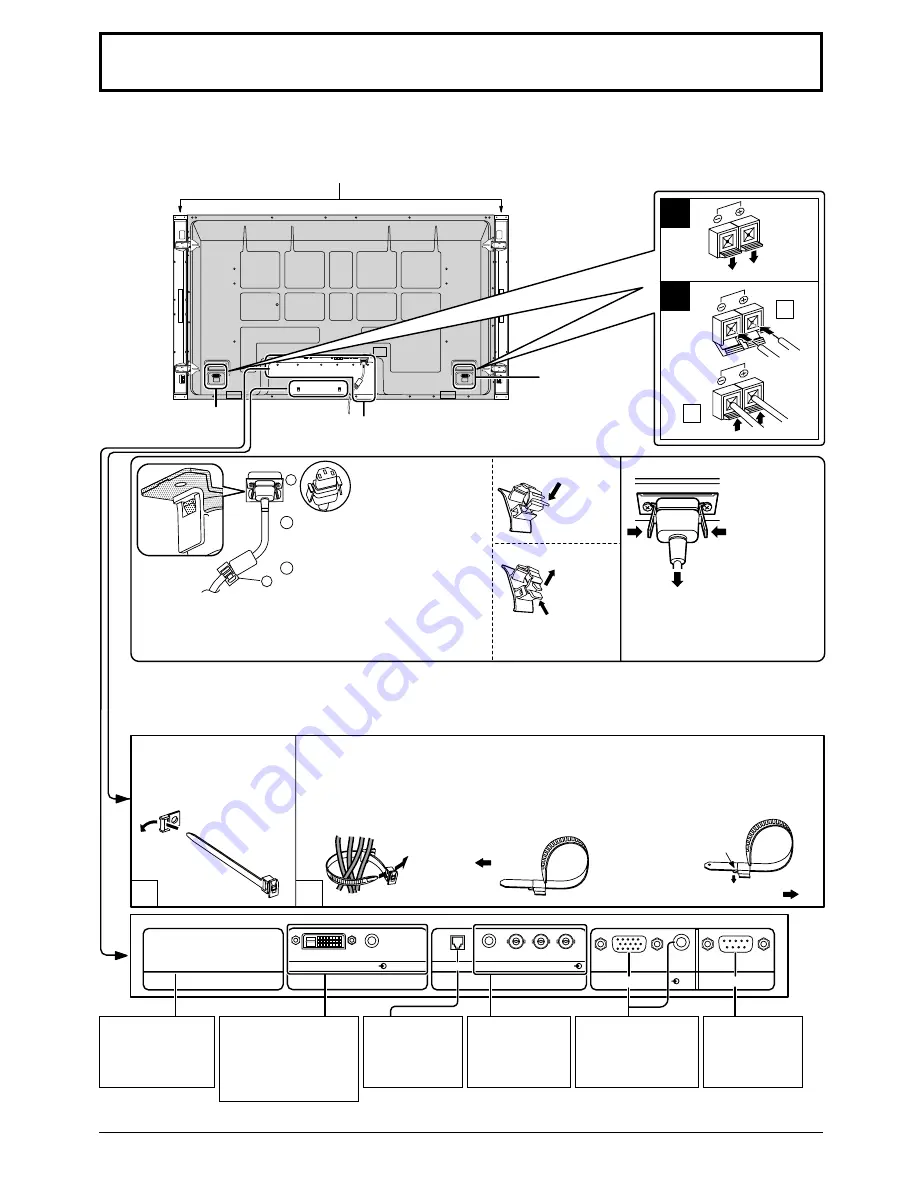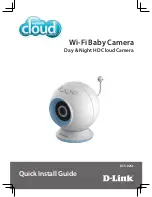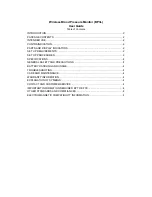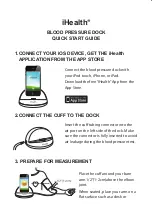
SERIAL
PC IN
AUDIO
SLOT1
SLOT3
P
R
/C
R
/R P
B
/C
B
/B
Y/G
COMPONENT/RGB IN
LAN
SLOT2
AUDIO
AUDIO
DVI-D IN
1
2
1
2
1
2
1
2
8
Connections
Speaker
terminal (R)
Speaker
terminal (L)
When connecting the speakers, be sure to use only the optional accessory speakers.
Refer to the speaker’s Installation Manual for details on speaker installation.
AC cord connection (see page 12)
Speakers (Optional accessories)
Pass the attached cable
fi
xing band through the clip
as shown in the
fi
gure.
To secure cables connected to Terminals, wrap the cable
fi
xing band around them
then pass the pointed end through the locking block, as shown in the
fi
gure.
While ensuring there is suf
fi
cient slack in cables to minimize stress (especially
in the power cord),
fi
rmly bind all cables with the supplied
fi
xing band.
To tighten:
To loosen:
Pull
Pull
Push the catch
– AC cord
fi
Note:
Terminal board is installed in SLOT 2 and SLOT 3 at factory shipment.
– Cable
fi
xing band
Secure any excess cables with band as required.
Note:
One
fi
xing band is supplied with this unit. In case of securing cables at two positions, please purchase it separately.
Note:
Make sure that the AC
cord is locked on both the
left and right sides.
Push
until
the hook
clicks.
2.
Pull
off.
Close
Open
1
Plug the AC cord into the display
unit.
Plug the AC cord until it clicks.
2
Fix the AC cord with the clamper
which is attached to the unit.
For the TH-58PF12EK:
Clampers are not installed to this
unit. Ensure there is suf
fi
cient slack
in the AC cord and
fi
rmly bind with
the supplied cable
fi
xing band, etc.
1.
Keep the
knob
pressed.
Unplug the AC cord
Unplug the AC
cord pressing
the two knobs.
Note:
When disconnecting the AC cord,
be absolutely sure to disconnect
the AC cord plug at the socket
outlet
fi
rst.
From SERIAL
Terminal on
Computer
(see page 10)
From EXTERNAL
monitor terminal
on Computer
(see page 9)
DVI-D IN Terminals
(equivalent of DVI-D
Terminal Board
(TY-FB11DD))
(see page 11)
Optional Terminal
Board Insert Slot
(covered)
COMPONENT/
RGB IN
Terminals
(see page 11)
LAN Terminal
(see page 57)







































